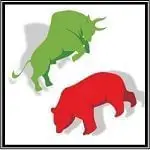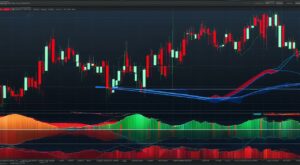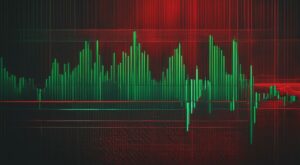Your cart is currently empty!
What are Islamic Finance and the Ethics of Forex Leverage?

Affiliate Disclaimer: This post may contain affiliate link or links
Welcome to the world of Islamic banking, a realm of Shariah compliant finance that operates under a unique Islamic financial system.
A system where commonly known practices like interest (riba) are prohibited and Halal investing takes center stage.
Islamic finance aligns with Sharia principles, prohibiting interest and promoting ethical investment. Forex leverage ethics involve responsible use to avoid excessive risk, respecting Islamic values in financial transactions.
Contents
Islamic Finance and the Ethics of Forex Leverage
In today’s article, we will delve into intricacies of forex trading in compliance with Islamic law, discussing elements such as leverage trading, margin trading, and high leverage risks.
At the heart of it all, we will focus on understanding how the Islamic view of speculation, risk management, and ethics interact with forex trading.

Understanding Islamic Banking and its Principles
Islamic banking isn’t just about a religion, rather, it’s a practice inspired by the principles of Islamic economics characterized by interest-free banking and profit-sharing finance.
The key principles underpinning Islamic finance are the prohibition of Riba (interest), Gharar (uncertainty), and Maysir (gambling).
Prohibition of Riba, Gharar, and Maysir
Riba is seen as unjust enrichment and is, therefore, forbidden. It is not permissible in any form, whether it’s straightforward interest or hidden in costs or terms.
Gharar prohibits transactions that are uncertain or ambiguous. Unpredictable events, such as those found in insurance contracts or derivatives, are unacceptable.
Maysir refers to transactions that are akin to a game of chance. Islam and finance principles do not permit such transactions as they are seen as gambling.
Islamic Capital Markets and Their Instruments
Islamic capital markets serve as a platform for the issue and trading of Shariah compliant securities.
They provide opportunities for Halal investing, offering various instruments such as sukuk (Islamic bonds), takaful (Islamic Insurance), murabaha (resale with a stated profit), ijara (lease agreements), musharaka (equity participation), and mudaraba (trust financing).

Islamic Forex Trading
Forex trading in general involves buying and selling currencies, usually in pairs, to make a profit. Islamic Forex Trading also operates on this premise, but in compliance with Shariah law.
Islamic Stocks and Funds
In the realm of Forex trading, Islamic stocks and Islamic funds form an essential element of the market. These are free from elements of riba, gharar, and maysir, making them compliant with Shariah law.
The table below shows pros and cons of islamic forex trading.
| Pros | Cons |
|---|---|
| Ethical Standards: Islamic Forex adheres to principles of justice, honesty, and fairness. | Limited Short Selling: Short selling in the traditional sense might not be allowed due to the prohibition of “gharar” (uncertainty). |
| No Interest Charges: In an Islamic account, Forex traders do not get charged or receive swaps or rollover interest on positions held overnight. | Fewer Trading Instruments: Not all financial instruments comply with Islamic laws. Some forms of derivatives may be forbidden. |
| Profit and Risk Sharing: Islamic law encourages profit and loss sharing. This could potentially foster more responsible trading. | Limited leverage: Although leverage is allowed, it must be managed responsibly to avoid excessive risk-taking. |
| Investment Transparency: Islamic finance principles discourage deceptive and ambiguous transactions, promoting transparency. | Regulation Differences: Forex brokers might interpret Sharia laws differently leading to variations in trading rules and restrictions. |
| Socially Responsible investing: Opportunities in investing in sectors and companies that contribute to the social good. | Higher Operational Costs: Some brokers could charge higher administration or commission fees to compensate for the lack of swap fees. |

Impact of Ethics on Trading
Ethics and moral principles form the backbone of Islamic finance. Aiming for ethical investing and socially responsible investing, an Islamic trader is encouraged to shun greed and materialism.
Islam, Ethics, and Business
In Islamic business ethics, trustworthiness, fairness, and justice are highly valued. These virtues must reflect in all forms of trade and business transactions, including forex trading.
Islamic Finance vs. Conventional Finance
Coming to the difference between Islamic and conventional finance, one fundamental factor revolves around how organizations use financial information.
In conventional finance, speculation is allowed whereas in Islamic finance speculation or gambling mindset is seen as unethical.
| Ethical Component | Impact on Trading |
|---|---|
| Fairness | Ensures trades are conducted in a just and honorable manner, promoting a healthy market ecosystem. |
| Transparency | Enhances trust amongst market participants, critical for a well-functioning trading market. |
| Social Responsibility | Encourages traders to consider the larger societal impact of their investment decisions. |
| Honesty | Builds trust between traders, brokers, and other stakeholders, promoting overall market integrity. |
| Integrity | Holds traders accountable for their actions, ensuring the maintenance of high moral standards in conducting trades. |
| Avoidance of Greed | Prevents reckless risk-taking and promotes sustainable, long-term investing. |
| Risk Management | Encourages traders to safeguard their capital and avoid excessive risk, leading to a healthier and stable market. |
By embracing these ethical standards, traders can contribute to creating a more sustainable, respectful, and trustworthy trading environment.

Leverage and Margin Trading in Islamic Finance
Leverage trading allows a trader to open a position much larger than their own capital, while Margin trading is when traders use borrowed funds from a broker to trade.
In forex trading, leverage is appealing due to the possibility of amplifying profits. However, it also amplifies the risk.
Managing High Leverage Risks and Risk Management in Islamic Finance
Excessive leverage is susceptible to high leverage risks and can lead to blowing out accounts.
It requires discipline, proper risk management, suitable position sizing, use of stop losses, understanding of volatility, sound knowledge of margin calls, and a strict trading plan.
Islamic View of Speculation and Excessive Risk Taking
According to Islam, speculative trades, which can be regarded as a form of gambling, are not permissible. Any form of excessive risk-taking or over-leveraging that leads to a gamble is not permissible.
| Component | Leverage Trading | Margin Trading |
|---|---|---|
| Definition | Leverage allows traders to control larger positions with a smaller amount of funds. | Margin trading involves borrowing funds from a broker to trade. |
| Risk-Return Tradeoff | Higher returns expected but potential losses can also be significant. | Can amplify profits, but also the potential losses should trades go the opposite direction. |
| Islamic Finance perspective | Leverage is allowed as long as it doesn’t lead to excessive risk-taking or involve interest transactions. | Margin trading is acceptable as long as the borrowed money is not charged with interest. |
| Risk Management | Essential to avoid high leverage risks such as blowing out accounts. | Crucial, especially around aspects of call margins and stop losses. |
| Example | A leverage of 1:100 allows a trader to hold a position worth $10,000 by only putting up $100. | A trader uses $1,000 to buy $2,000 worth of a currency pair. The broker lends the remaining $1,000 to the trader. |
| Islamic Finance Ethics | Must avoid any form of excessive risk-taking, speculation, or gambling. | Same as Leverage Trading, any form of greed, materialism, or unfair practice needs to be avoided. |

Islamic Opinion on Forex Trading (Forex Halal or Haram)
Islamic Scholars have differing opinions on Forex trading. However, when it comes to Islam and Gambling, there’s a universal agreement. Any form of trading that can be deemed as a gamble is Haram (prohibited).
Islam and Materialism
Islamic finance discourages greed and encourages traders to avoid the cycle of materialism, letting the quest for halal income, trustworthiness, and fairness guide their journey.
| Aspect of Forex Trading | Islamic Opinion |
|---|---|
| Interest (Riba) | Prohibited |
| Uncertain Transactions (Gharar) | Prohibited |
| Gambling (Maysir) | Prohibited |
| Leverage Trading | Allowed but should not lead to excessive risk-taking |
| High Leverage Risks | Not encouraged, risk management is essential |
| Ethical Investing | Highly Encouraged |
| Socially Responsible Investing | Highly Encouraged |
| Day Trading | Differing Opinions, provided it doesn’t involve riba, gharar, or maysir |
| Margin Trading | Allowed with conditions, margin should not involve interest |
| Income from Trading | Must be Halal, i.e., earned in a right and just manner |

Conclusion
Islamic finance and the ethics of forex leverage are deeply intertwined, engaging in a constant dialogue to redefine boundaries and assert compliances.
Respecting Islamic views on speculation, gambling, and excessive risk-taking is the way forward in achieving sustainable, Islamic compliant trading practices.
Understanding and navigating this dynamic space is key to shaping an ethically informed trading persona that is attuned to both profit-making and Shariah law.
It’s not just about numbers, but about values, faith, and ethics too.
Download Double Top & Bottom Indicator
Other related article
- Trade Report Indicator: Indicator for Forex Traders
- Trend Profiteer Trading System: A Trader’s Must Have
- Quantum Trend Sniper Indicator MT4: Free Download
- German Sniper Indicator: Unveiling its Power
- Mastering MACD Intraday Trend | Indicator Free Download
- Crazy Accurate 5-Days Breakout Strategy: Unlock Success

Joseph Benson, I have been trading forex for more than 15 years now and I am still trading actively, a content writer, an Architect also SEO expert, learn how to trade easily with me.









Leave a Reply